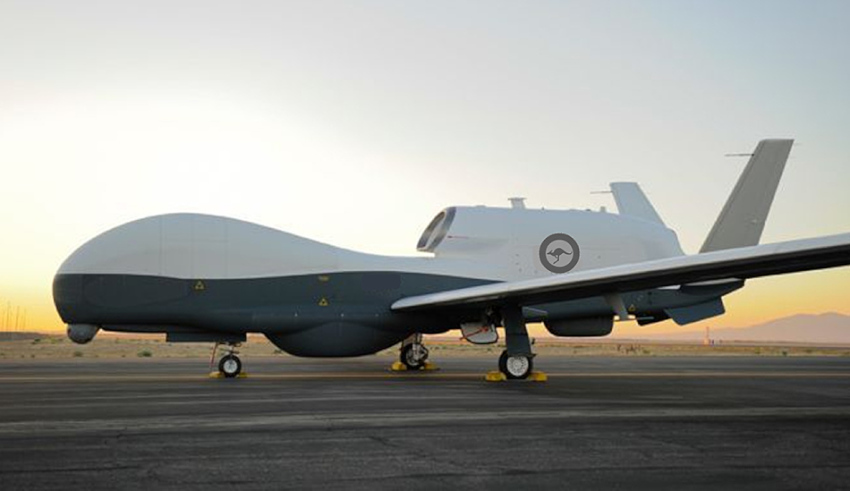The RAAF’s former deputy chief explains why Australia’s decision makers need to prioritise the enhancement of ISR capability.
To continue reading the rest of this article, please log in.
Create free account to get unlimited news articles and more!
With regional tensions rising by the day, spurred by a ramp up in aggression from the Chinese Communist Party, Australia’s decision makers have sought to plug warfighting capability gaps in preparation for a breakout in conflict.
But according to former deputy chief of the Royal Australian Air Force, Neil Hart, efforts to enhance ADF capability should prioritise the expansion of the country’s intelligence, surveillance, and reconnaissance (ISR) network, with the prevalence of ‘grey zone’ attacks suggesting that a new cold war is more likely than a than a great-power confrontation.
“Already we’ve seen many of the hallmarks of a cold war — economic and political coercion, propaganda and espionage, cyberattacks and information activities,” Hart writes in ASPI’s The Strategist.
“Australia should always be ready for high-end conflict, but talk of war is creating a Thucydidean distortion in the reprioritisation of defence funding towards armed capabilities at a time when the capabilities that inform adversaries’ decision-making and deter them from conflict have never been more important.”
Hart warns that overinvestment in weapons and offensive platforms could result in insufficient spending on the ISR capabilities needed to respond decisively with offensive systems.
“Re-equipping the ADF should also ensure that it has capabilities that allow us to pierce the information fog of grey-zone activities so we can work to avoid conflict,” he adds.
The RAAF’s former deputy chief notes China’s infrastructure investments in the Pacific, and the expansion of its presence in the region, warning that such encroachments would have implications for Australia’s supply routes and border approaches.
“In the context of grey-zone activities, that means gaining information to support policy and decisions across the spectrum of responses, not just weapons that may be required as a last resort,” Hart continues.
“If conflict should occur, the need for information to ensure the effective employment of offensive capabilities will become even more acute.”
Hart stresses that Australia’s long-range weapons capability can only be effective when supported by long-range ISR network.
“Gathering this information over a predominantly maritime area ranging from the South China Sea to Antarctica, and from Africa to the eastern Pacific, represents a significant burden, particularly when challenges can emerge from any direction at any time,” he writes.
“In that context, Australia’s ISR capabilities need to be persistent and responsive — and they must be an investment priority.”
Hart lists the benefits of a modern ISR network, including the prevention of surprise attacks, deterrence through early detection, and informing posture and military planning.
“Preparing in the dark is never a good idea and it’s even less so when preparing for war,” he adds.
The RAAF veteran acknowledges the capabilities provided by Australia’s P-8 Poseidon aircraft and surface and satellite assets, but claims their operations are limited by the endurance of crews and the risks they can be exposed to.
To address these potential shortfalls, Hart calls for more investment in unmanned platforms, like Northrop Grumman’s MQ-4C Triton and General Atomics’ MQ-9B SkyGuardian.
“Unmanned ISR assets such as the MQ-4C Triton and MQ-9B SkyGuardian drones can overcome many limits,” he writes.
“Their long range and endurance provide Australia with the persistent, high-quality and broad ISR and threat-warning support that other capabilities can’t match.
“They can contribute to all aspects of national security, including securing our borders and responding to bushfires, floods and cyclones. They could provide valuable data on Australia’s Antarctic territories, well out of the easy reach of other assets.”
Hart adds that unmanned platforms could provide support to Australia’s regional partners, protecting their maritime assets and responding to natural disasters, while also supporting European, US and Asian partners in maritime operations throughout the Indo-Pacific.
Hart concludes: “It would be unwise to reallocate funding to enhance strike assets for employment in a ‘possible’ dangerous circumstance at the expense of ISR capabilities for current circumstances or a range of other likely scenarios.
“We risk jeopardising our ability to understand what’s happening in our region and in our vital supply lines if we deprive decision-makers of valuable intelligence. That would also undermine the ADF’s ability to be informed and effective in its operations across the spectrum of ‘shape, deter and respond’.”
Get involved with the discussion and let us know your thoughts on Australia's future role and position in the Indo-Pacific region and what you would like to see from Australia's political leaders in terms of partisan and bipartisan agenda setting in the comments section below, or get in touch with
Charbel Kadib
News Editor – Defence and Security, Momentum Media
Prior to joining the defence and aerospace team in 2020, Charbel was news editor of The Adviser and Mortgage Business, where he covered developments in the banking and financial services sector for three years. Charbel has a keen interest in geopolitics and international relations, graduating from the University of Notre Dame with a double major in politics and journalism. Charbel has also completed internships with The Australian Department of Communications and the Arts and public relations agency Fifty Acres.

 Login
Login








